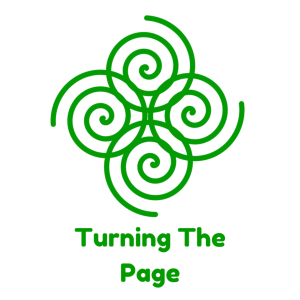
Friday Jan 08, 2021
Four steps to Build A New Trust
Trust can get broken so easily, but we can build a new trust by cognitively reassessing our situations. It takes time and effort, but it is worth it.
There was a rebuilding that needed to happen. It was a rebuilding of trust in themselves and with others.
Somewhere, some time, every one of us is going to have our trust broken. We live with an expectation that certain things will happen the way we believe they will happen. The rules won’t get broken. That the promises made will be kept.
But trust gets broken in many different areas of our lives.
- relationships
- career
- health
- Government
- Church
- God
I once sat with a man who, in his late forties, discovered he had manic depressive episodes.
Up till then, everything seemed fine. His wife told me that he had had a few strange moments in his life with some weird ideas, but for the most part, he lived within the bounds of what anyone would call normal.
Then all of a sudden, his illness truly took control, and he started acting highly erratically. He was admitted into the psych ward and began the journey into an awareness of his broken self.
With medication, support, and guidance, he returned to his family and started to rebuild his life. But there was a deep loss of trust in himself, his world, and his God.
As he talked with me, there was a need to rebuild trust in himself. The beliefs he had about himself, life, and God were all lying in rubble.
Trust questions knawed at his soul.
- Do I trust my thinking?
- Where was God?
- What do I believe now?
- Who do I trust?
Shame and guilt pounded on his soul. ‘What a fool’ was spoken out more than once.
When you’re in a hole, it’s easy to drown in the dirt you’re digging in.
Broken trust Bible
The Bible is full of stories where trust has been broken.
- Josephs relationship with his brothers
- Davids affair with Bathsheba
- Peters denial of Jesus Christ
With each of these moments, there was a time where there was a breach of trust.
Joseph trusted his brothers, but they sold him into slavery. Could he trust them again?
David broke marriage vows and commitments to God. Could he be trustworthy again as a man and as a leader?
Peter broke his trust relationship with Jesus by denying him and leaving him alone. Could Jesus trust him again?
All of these examples, plus many more, show the fragility of trust. Trust is finite; life is fragile.
There is a Fragility
As I sat with the man discovering his manic depressive illness, I witnessed his awareness grow about his fragility.
That given the right amount of stress, lack of sleep, and with a body that was vulnerable in its own particular way, then the fragility would crack. He would become unwell and unstable.

He was becoming aware of his weaknesses.
Before the breakdown, he would have given theoretical assent to this weakness, but now he was truly knowing and embracing it on a soul level.
He could have talked about physical weaknesses on a theological level, but now he was searching for God amongst the rubble of his own torn down city.
There is a fragility in life we can’t control and is open to breaches of trust.
Cognitive reassessments
Rebuilding trust requires the ‘brick by brick’ work of cognitively reassessing that which we are trusting in.
A cognitive reassessment means to look at the facts. The brick and mortar of the situation. Is there change? What actually has been done?
Brick by brick, we can build it from the floor
If we hold on to each other,
we’ll be better than before. Train

Our subconscious can be reprogrammed through cognitive reassessments of behaviors.
Joseph had to do a cognitive reassessment of his brothers to see whether they could be trusted again. He did this by giving them several tests.
David could not be trusted to be leader and King again without going through his dark night of the soul. The behaviors of repentance and sorrow marked a changed life.
Jesus could once again trust Peter when he saw the brokenness of his heart. He had to tell Peter three times of his trust in him.
Build a new trust
How do we build a new trust in ourselves and others?
There is a process, and it requires deep listening into the soul.
1. Listen for the voices of mistrust
We all have those voices of mistrust that say, ‘Don’t trust, you’ll get hurt again.’ We need to recognize them and pay attention to them, but we don’t necessarily have to agree with them.
Those whispers may well be the subconscious brain trying to keep us safe.
They are there for a reason. What would the reason be?
2. Look for the facts
We can so easily get caught up in the emotions of the past that we judge the present by the past.
Instead, we need to look for the facts of the now.
We look for the changes made. Tangible, observable, and real.
Is there evidence of a change?
3. Know your lines of love and respect
Many people use the word ‘Boundaries,’ but I prefer ‘Lines of Love and Respect.’
It’s that line where you have a sense of love and respect for yourself and others.
‘I show love and respect for others by not calling them in the middle of the night wanting to have a chat. I know that if I did, I would be ‘crossing a line.”
‘Others demonstrate love and respect for me by the behaviors of not calling me in the middle of the night. They understand that this would be ‘crossing a line.”

Understanding and accepting your own needs of love and respect is part of rebuilding trust in yourself and others.
When people continue to show disrespect or an unloving approach to the lines of love and respect I have around me, I begin to trust them less.
If someone keeps ringing me in the middle of the night, showing no respect for my needs of sleep and rest, then the line becomes a fence, then a wall with barbed wire, then a wall with machine guns and guard dogs.
Sometimes you have to tell people your ‘lines of love and respect.’
At times, you have to repeatedly tell them and then follow up any breaches with natural consequences.
Trust builds when everyone agrees on the lines of love and respect.
When people keep ‘crossing the line,’ and you have to enforce some consequences, remember you are not rejecting them; instead, you are rejecting their behaviors.
How can you walk as one with someone unless there is a level of trust?
Can two walk together, unless they are agreed? Amos 3:3
4. Rehearse the truth
What is the truth that you are thinking out of?
We often need to tell ourselves new truths that will rebuild a sense of trust in ourselves and others.
- ‘That was then; this is now.’
- ‘I am no longer the same person I was then.’
- ‘The past does not define who I am. I choose to live in the present.’
- ‘I am not the mistakes I have made.’
- ‘I have changed. I have grown.’
- ‘I am no longer doing those same things I did back then.’
- ‘I now have these guardrails in place.’
- ‘I now understand Early Warning Signs‘
- ‘I have lines of love and respect in my relationships (boundaries)’
- ‘I don’t have to walk with someone I am not in agreement with.’
Trust can get broken so easily, but we can build new trust by cognitively reassessing the situations we are in. It takes time and effort, but it is worth it.
Quotes to consider
- “I didn’t reject you, I rejected your behaviour. Change your behaviour, before we can walk together again.” D. Riddell
- Just because you forgive someone does not mean you must trust them – that has to be earned back again. David Riddell
- How can I re-assess you until you demonstrate your changed mind? Until then I must keep you trapped in your past, for restitution must come before restoration of trust. D. Riddell
- God is no stranger to the process of repairing damaged relationships. His trust has been broken many times by those he loves. John Townsend and Dr. Cloud Henry
- You get your confidence and intuition back by trusting yourself, by being militantly on your own side. Anne Lamott
- Rebuilding shattered trust necessitates reliable actions over time. Stefanie Carnes
- Talk’s easy, work’s hard. Consistent trustworthy behavior over time equals trust. Notice the word consistent is emphasized. Consistency is the key to the process. This becomes an even greater challenge because “addiction is a disorder that is characterized by relapse.” Stefanie Carnes
- We forgive, but we base our trust on the trustworthiness of the other person. Timothy R. Jennings
Questions to answer
- Are you still held back by voices saying not to trust? Why are those thoughts there?
- What are your ‘Lines of love and respect’?
- What truths do you need to feed your brain with to rebuild trust? Are you ‘militantly on your own side’?
Further reading
Barry Pearman
Photo by David Boca on Unsplash
No comments yet. Be the first to say something!